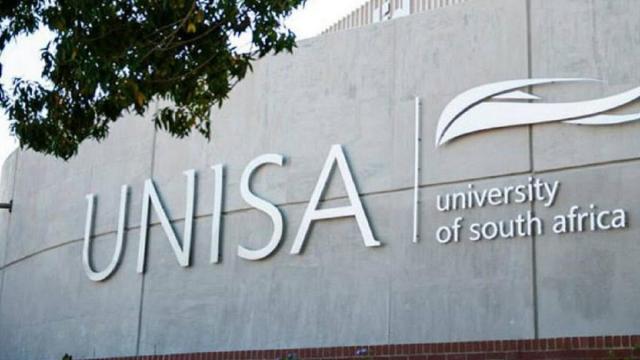
In this guide, we will explore the concept of negative balances at the University of South Africa (UNISA) and provide a step-by-step explanation of why and how students may encounter negative balances on their UNISA platform. We will also discuss the implications of owing money to UNISA and provide important information to help students manage their fees effectively.
Understanding UNISA’s Fee Structure
UNISA’s fee structure consists of tuition fees, miscellaneous fees, and other costs that vary based on the student’s residency status and the program they are enrolled in. Tuition fees cover the cost of teaching, while other fees include charges for registration, exams, library usage, and more.
What Does a Negative Balance Mean at UNISA?
A negative balance on a student’s account at UNISA indicates that they have a credit or overpayment. In simpler terms, it means that the student has paid more than they owe, and the excess amount is sitting in their account as a credit balance. This situation can occur when a student receives a bursary, scholarship, or makes a payment that exceeds their outstanding balance.
It’s important to note that having a negative balance is not a cause for concern. Instead, it indicates that the student has a credit that can be used to pay future fees or refunded upon request. However, students should be aware of the implications of a surplus balance, as it may affect financial aid eligibility or future billing cycles.
Why Would a Student Have a Negative Balance?
Several scenarios can lead to a student having a negative balance at UNISA:
- Late Payments or Incomplete Payments: If a student fails to pay their fees on time or makes incomplete payments, their account may have a negative balance. This can occur if the student owes money from a previous semester or if their financial aid does not cover the full tuition amount.
- Overpayment: Making multiple payments for the same expenses or experiencing billing or payment issues can result in overpayment and a negative balance.
- Dropped Courses: If a student drops a course after the refund deadline, they may still owe fees for that course, leading to a negative balance.
- Invoicing Errors or Financial System Defects: In rare cases, invoicing errors or issues with the financial system may cause an incorrect account balance.
Implications of Owing Money to UNISA
Owing money to UNISA can have serious consequences for students. Here are some potential implications:
- Registration Hold: Students who owe money to UNISA will not be able to register for new courses until their fees or debts from previous semesters are paid in full. It is crucial to be in good financial standing with the university to proceed with registration.
- Withholding of Results and Transcripts: If a student is financially suspended due to unpaid tuition, library fines, or other obligations, UNISA may withhold their exam results or transcripts, which can impact their academic progress.
- Late Fees and Penalties: Outstanding fees may accumulate late fees, fines, and interest, increasing the financial burden on the student.
- Legal Consequences: If debts remain unpaid, UNISA may take legal action to recover the money, which can lead to lawsuits, lower credit scores, and collection efforts.
Registering with Outstanding Debts
It’s important to note that students cannot register for new modules or courses at UNISA if they have outstanding debts. Before registering for any program, module, or course for the upcoming term, students must ensure that they have paid off all fees and debts from previous semesters.
Dealing with Financial Suspension at UNISA
Financial suspension at UNISA usually occurs when a student has unpaid tuition, library fines, or other financial obligations. The consequences of financial suspension may include:
- Results Withholding: UNISA may withhold exam results or transcripts, affecting the student’s academic progress.
- Penalties and Fines: Financially suspended students may incur additional penalties or fines, further increasing their financial burden.
- Limited Access to University Facilities: Students under financial suspension may be denied access to university facilities until their debts are settled.
To mitigate the consequences of financial suspension, it is essential to address outstanding debts promptly and settle all financial obligations.
Managing Your UNISA Fees
To manage your fees effectively and avoid negative balances or financial difficulties at UNISA, follow these steps:
- Regularly Check Your UNISA Student Portal: Log in to your UNISA student portal frequently to stay updated on fees, payment deadlines, and any changes to amounts owed or negative balances.
- Pay Fees on Time: Ensure that you pay your fees by the specified deadlines to avoid late payment penalties and negative balances.
- Seek Financial Assistance: If you require financial assistance, explore options such as bursaries, scholarships, or loans to help cover your fees. Be mindful of the terms and conditions associated with these funding sources.
- Communicate with the Finance Department: If you have concerns or questions regarding your account balance or negative balance, reach out to UNISA’s finance department for clarification and guidance.
Conclusion
Understanding negative balances at UNISA is crucial for students to manage their fees effectively and avoid financial difficulties. By staying informed about fees, paying on time, and addressing any outstanding debts promptly, students can maintain good financial standing with the university and ensure a smooth academic journey.
Remember to regularly check your UNISA student portal, communicate with the finance department when needed, and seek financial assistance when necessary. By taking these steps, you can navigate your UNISA fees successfully and focus on your studies.
Was this helpful?
3 / 1
#Bursaries #Education #Finance #News & Updates #Teaching #University of South Africa (UNISA)